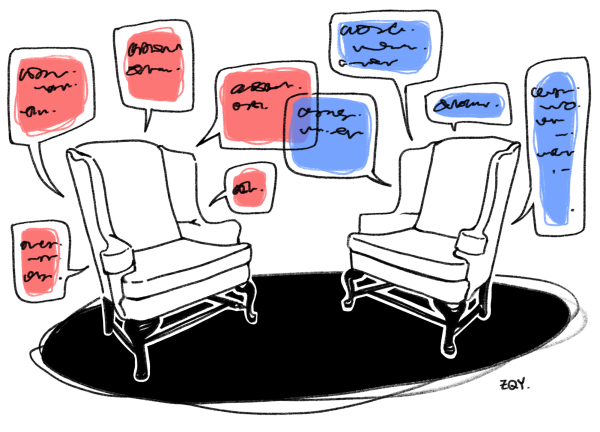A Constitutional Reg Flag
It has become clear to the vast majority of Americans that “thoughts and prayers” are no longer enough. In the wake of the Parkland shooting, there have been numerous calls for legislative action to implement stronger gun control laws on both state and federal levels. These calls have been amplified to a fever pitch with the recent acts of terrorism in El Paso, Texas, and Dayton, Ohio.
One solution seems to be red flag laws. These laws allow family members, law enforcement officers, and in some cases, teachers to request a court order to temporarily confiscate guns from an individual believed to be a threat to themselves or others, and have been endorsed by lawmakers from both sides of the aisle, including the President and most 2020 Democratic candidates. At the time of the writing of this article, seventeen states have already passed red flag laws, and there is a bill in the works that would provide federal grants to entice more states to pass such laws.
In many ways, it looks like the country has found the silver bullet. Red flag laws are significant enough to give a victory to the left and begin to address the gun violence epidemic, without creating new restrictions on guns themselves and instead focusing on the mental health aspect of the issue. However, these laws actually pose a serious threat to constitutional liberties. In Oregon, for instance, the law allows confiscation orders to be granted by a judge in an ex parte hearing, which means that the hearing takes place without any chance of defense by the subject of the order. In essence, with nothing more than a brief statement by a law enforcement officer, an Oregonian could have their legally-possessed firearms confiscated by the government. They would then have the chance to appear before the court at a later date. This process constitutes a dangerous curtailment of the right to due process guaranteed by the Fifth and Fourteenth Amendments. The ability of a court to deprive an American citizen of their property and ipso facto their right to bear arms without the subject being notified or given the chance to present evidence on their own behalf opens the door for abuse of power and further restriction of liberty.
Imagine you are a law-abiding gun owner. Red flag laws such as Oregon’s could create a scenario in which a police officer shows up at your door with a piece of paper, seizes your firearms without any suggestion of criminal intent or activity, and tells you if you want them back you can go to court in a few weeks. You may have to hire a lawyer, pay court fees, and take time out of your schedule to get back private property that never should have been taken in the first place. Red flag laws create an unacceptable reality in which property can be seized without a warrant or full procedural due process and can only be retrieved through a lengthy and potentially costly court hearing in the future. Regardless of the justification behind such a reality, on that basis alone red flag laws should be struck down across the nation.
Indeed, the justification behind red flag laws is actually quite admirable. Every effort should be taken to make sure that mentally ill, suicidal, or otherwise threatening people do not have access to firearms. In fact, it would serve America greatly for gun ownership as a whole to decrease. There is no question that our unbelievably high rate of gun violence is due to our equivalently extraordinary rate of gun ownership. According to the BBC, there are 120.5 firearms in America for every 100 residents; meanwhile, the Pew Research Center found that three-fourths of homicides in 2017 were gun-related. However, ceding Constitutional rights to state governments is not the answer. As Benjamin Franklin put so succinctly, “those who would give up essential liberty, to purchase a little temporary safety, deserve neither liberty nor safety.”
Thus, the question remains: what is the solution? Certainly, approaches such as strengthening background checks, closing loopholes in licensing requirements, and improving the nation’s mental health infrastructure are excellent first steps. Buybacks, assault weapon control, and minimum purchasing ages are also solid policy. Ultimately, an omnibus gun safety bill including all of these ideas and more would go a long way toward staunching the flow of blood streaming down American streets. However, it is imperative that we not lose sight of the greater legal framework under which this country operates. No crisis is so great, no emergency is so pressing, no body count is so high as to warrant a suspension or curtailment of our fundamental liberties. Once you give away freedom, it is almost impossible to get it back.












